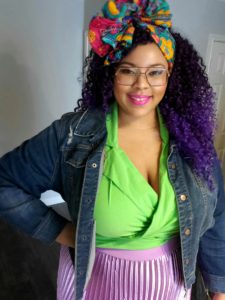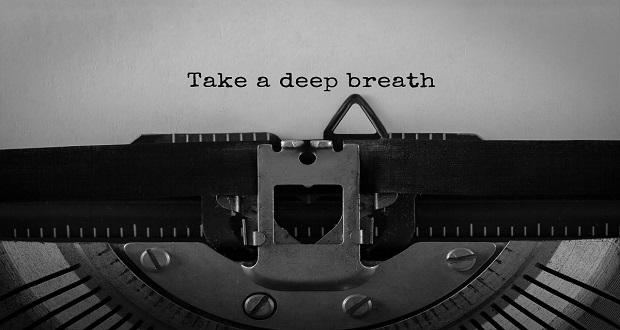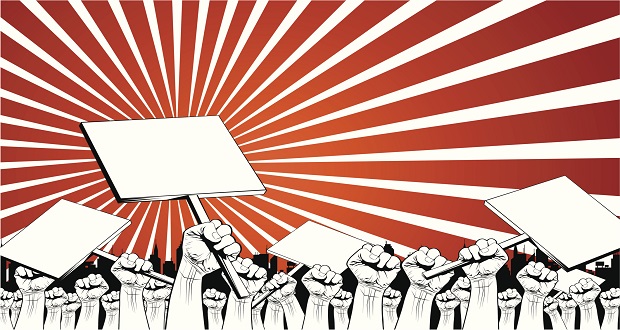This week’s feature highlights the experiences of navigating our Volatile, Uncertain, Complex, and Ambiguous world from The Winters Group’s Learning and Innovation’s newest team members, Tami Jackson and Gabrielle Gayagoy Gonzalez. Following is an excerpt from Tami and Gabby’s discussion on the different reasons that brought them to The Winters Group, plus the common takeaways that helped them transition to new roles in the middle of the pandemic.
Gabby: Okay, so our latest series for The Inclusion Solution is on how the VUCA world impacts people — from the pandemic and the Great Resignation to the polarization of our politics and the surfacing of blatant racism. We’re also looking at ways organizations can best support their workers. Given all that, what are some stories that resonate for you, Tami?
Tami: You know, I’ve said this publicly before, so I don’t feel like it’s a big deal to say it now, but I’ve spent my entire adult career — the entirety of it — basically having to teach people how to manage me, teach managers how to manage me and treat me, and teach co-workers how to interact with me. That sounds basic when you say it out loud, but what I have found in my experience, especially because of my intersections, because I’m a Black woman of size, of stature, because I don’t code switch when I talk, because I am very culturally and ethnically centered in my Black American experience, for all those reasons I think people just forget their humanity with me quite a bit. And I just got to the point in my life and career, Gabby, where I was tired and I was like alright. There’s only so many times you can see a pattern, and then you’re like, okay. You don’t think I deserve empathy? You don’t think that I deserve compassion? We see this a lot with Black women in the medical industry, but people just think Black folks, especially Black women, just have a higher tolerance for pain, and I think marginalized people in general are constantly being told that they gotta suck it up essentially for success. And I realized in my old positions I don’t think a lot of those folks had any interpersonal interactions with any Black folks, especially Black American folks, in their lives, outside of either being a subordinate to them or in service to them. I figured that out real quick when I was working by the way folks interacted with me.
Gabby: Thank you for sharing that, Tami. I’m so glad you are calling these things out because they need to be said. You absolutely deserve empathy and compassion. So, after all of that, how did you end up at The Winters Group?
Tami: I just made a decision. I got to The Winters Group because I started putting my intentions out there that I wanted something different. I just started being very intentional about how I interacted, what I put out in the world, what I said my needs were, following folks in the industry, talking about these things on LinkedIn, and just attending events that were designed to hold space for people like me. And so eventually I ended up connecting with Brittany through a conference that we both attended.
Gabby: “Designed to hold space for people like me” resonates. What do you mean by that?
Tami: Black women and other marginalized women, but primarily Black women. I’m very, very clear and very, very intentional that I need to be around Black women and other women of other marginalized experience. And that goes back to intention, right? Like if I wasn’t clear about what I wanted to do and how I wanted to do it, there would have been no way that Brittany would have even thought to alert me that the position was available. So, you have to be very clear about what you want and I was very clear that I wanted to move to a space that had more people of color, marginalized individuals, BIPOC. I mean here’s the thing: My heritage enriches my professionalism. My lived experience enriches my professionalism or whatever word you want to use. In my work, I do this work well because of who I am, right? I would not be able to do this work if I hadn’t had the lived experiences that I have. So, it serves nobody no purpose to try to mold me or taper me or tone me down. I literally have to tell people, and I’m showing my age here, but I kind of say I’m the “Dennis Rodman of DE&I,” but the only difference is I just went to therapy. If you know anything about classic late 80s/90s NBA basketball, you know that Dennis Rodman has this legacy of being out of the box in his self-expression and in his way of interacting. However, you would also know he’s one of the top defensive players in the NBA of all-time. And that’s kind of how I feel about my role on my team. If you can just allow me to be me, I’m going to be one of the best assets you have on your team ever. And I’m going to be one of the best teammates you’ve ever had. I am going to go in get tons of rebounds and opportunities for those around me to shine and make plays.
I do this work well because of who I am. I would not be able to do this work if I hadn’t had the lived experiences that I have. Click To Tweet If you can allow me to be me, I’m going to be one of the best assets you have on your team. And one of the best teammates. I am going to get tons of rebounds and opportunities for those around me to shine and make plays. Click To Tweet
Gabby: I certainly know this to be true after working with you! And what’s really standing out to me right now is how different your story is from mine as far as the role racism has played in shaping your interactions with your co-workers and dealing with other people’s perceptions of what constitutes professionalism. At the same time, we are also tracking some similar takeaways as far as being intentional and honest about what you want, and asking for what you need.
Tami: Yeah, I said this to a homie the other night. I said, “You gotta know, how do you define success and how do you define values, and as yourself what are your core values?” And I would literally write them down. And get deep with it. Every time you feel the inkling that success is what someone told you to do, you have to acknowledge that and start writing over again.
Gabby: Hands down, one of the blessings of the pandemic has been the disruption to the daily grind. Being cooped up at home for those first few months gave me a break from commuting to my job in property management and left me with a lot of time to reflect on how I wanted my life to look. As a new mom to a 4-month-old, working from home and maximizing family time was a priority. I also knew that I wanted to pursue a career in diversity, equity, and inclusion in earnest. In different ways, I had been doing DEI work throughout my 12-year career in journalism and eight years in education, whether it was intentionally covering more women of color in magazine features or helping open New York City’s first software engineering-focused public high school, which expanded access to coding education for Black, Latinx, and female students. But the DEI field was still relatively new to me as a career path, so finding that first job felt elusive. Meanwhile, I had all of this writing experience, and writing is very conducive to working from home.
One of the blessings of the pandemic was the disruption to the daily grind. Being cooped up at home gave me a break from commuting and left me with a lot of time to reflect on how I wanted my life to look. Click To Tweet
Tami: So, now I really want to highlight the disabled community and disabled activists, because they’ve been talking about work from home way before COVID happened. They’ve been talking about that as a need and as a way to be accessible to their needs and our needs because I fall into that category too. I think it’s very important to highlight that yeah, it was COVID that shifted the culture, but disabled activists and disability activists have been talking about work-from-home and accessibility for a month of Sundays.
It’s very important to highlight that yeah, it was COVID that shifted the culture, but disabled activists and disability activists have been talking about work-from-home and accessibility for a month of Sundays. Click To Tweet
Gabby: You are so right, Tami, and I am honestly thankful that working remotely has become more mainstream as a result. In my pursuit of that, I think I applied to something like 50 jobs that were a mix of DEI and writing. The next month I started freelance writing on the side and a few weeks later I decided to switch to writing from home full time. While it was a major pay cut on the surface, my take home was actually going to be better than if I had stayed in my job and paid for part-time help to watch our son, something I would have been forced to do with my office reopening. At the time, my husband and I were trying to limit our exposure to others, so even getting a part-time sitter was something we wanted to avoid. So, having a flexible schedule as a freelancer was also a plus; however, it was on me to find health insurance. Changing jobs in the middle of a pandemic certainly wasn’t the easiest or most obvious decision, but in hindsight I’m glad I did it because it put me on a path that led to steady DEI work, as that was not currently being addressed at my new company.
Getting to a point where DEI could be a part of my job description also wasn’t apparent and required me to advocate for the position to be full-time with benefits. Like so many who work in the DEI field, I had to do some extra work on my own time analyzing data and writing up guidelines and recommendations in order to get the higher ups to take notice. When the offer finally came through, I was very grateful though a bit disappointed because the salary was lower than average for a comparable position in New York City and it was not up for negotiation. This being a VUCA world, I chose to move ahead as it was still a step up as far as salary and benefits. However, as someone who lives in an expensive city and who does not come from inherited wealth, I knew that even though I loved my job I would eventually need to find new full-time work. This is how I made my way to The Winters Group.
When DEI became part of my job description, it required me to advocate for the position to be full-time with benefits. I had to do extra work on my own time analyzing data and writing guidelines to get higher ups to notice. Click To Tweet
Tami: And shoutout to The Winters Group for being ahead of the game. They were doing all of this work from home before the pandemic. And that’s a testament to what The Winters Group is about. They knew they could have a dope team and do really dope things if we didn’t all have to be in Charlotte or in Baltimore or Houston or New York.
Gabby: Exactly! TWG is primed for VUCA. Working from home? Check. Flexible schedule? Check. Fair and equitable pay? Check and check. When I found out the company conducted a pay equity audit and had given out pay bumps just before I was hired, I knew I was in the right place. Even better, landing here has been a dream job for me as someone who has been striving to do this work in an official capacity. We work on DEIJ learning journeys with such a broad range of respected clients, from tech and entertainment companies to healthcare systems and nonprofits, so it feels like a new job every day where we have an impact on hundreds of people across multiple industries. And in my experience, the culture at TWG reflects our work in disrupting dominant narratives. Eschewing a false sense of urgency and prioritizing mental health and self-care is modeled by everyone in leadership and is therefore practiced at every level. Healthy boundaries are encouraged and respected.
What if this could be the norm reimagined at every workplace? Perhaps women would not be leading the Great Resignation, and we would have more moms in the workforce who feel empowered to contribute their expertise. Currently 1 in 3 women are considering scaling back their career or quitting altogether, according to McKinsey & Company, but this doesn’t have to be the case if workplaces are able to adapt. And to all of your points, Tami, workplaces in a volatile, uncertain world definitely need to do a better job of providing robust supports to make work more accommodating and accepting of all types of people, and especially those most impacted by racial injustice because it clearly adds yet another, deeply personal layer to all of the burdens we face during these VUCA times.
What if this could be the norm reimagined at every workplace? Perhaps women would not be leading the Great Resignation, and we would have more moms in the workforce who feel empowered to contribute. Click To Tweet
Tami: Absolutely, Gabby! It’s so important for organizations, workplaces, and managers — anyone with any type of institutional power and/or influence — to understand how they either contribute to VUCA or set systems and models in places with intention so that VUCA cannot thrive. Either way, action is most certainly needed and must be done with deliberate intention to create lasting change.
It’s so important for organizations and anyone with institutional power or influence to understand how they either contribute to VUCA or set systems in places with intention so that VUCA cannot thrive. Click To Tweet
Co-Author: Tami Jackson





















